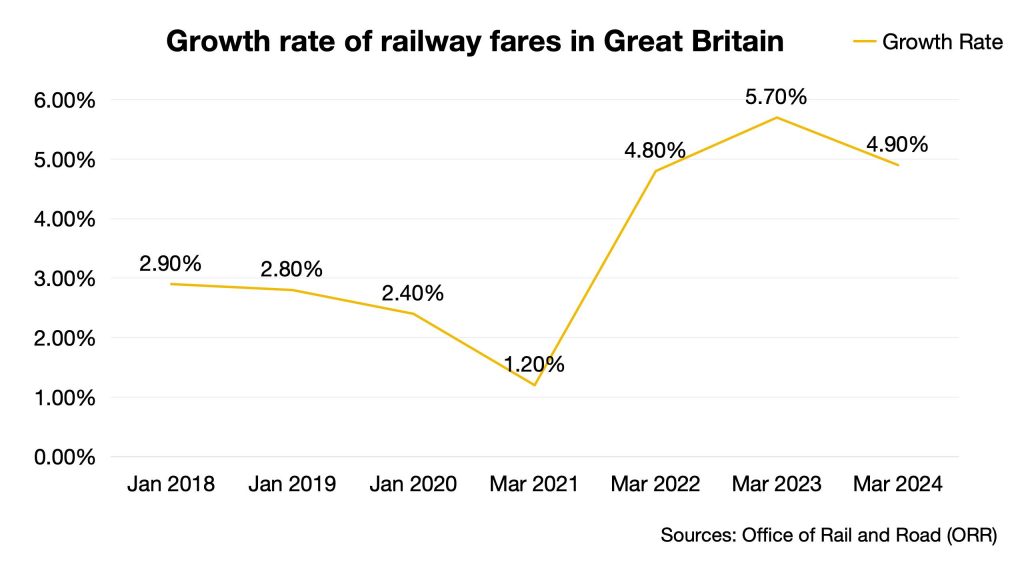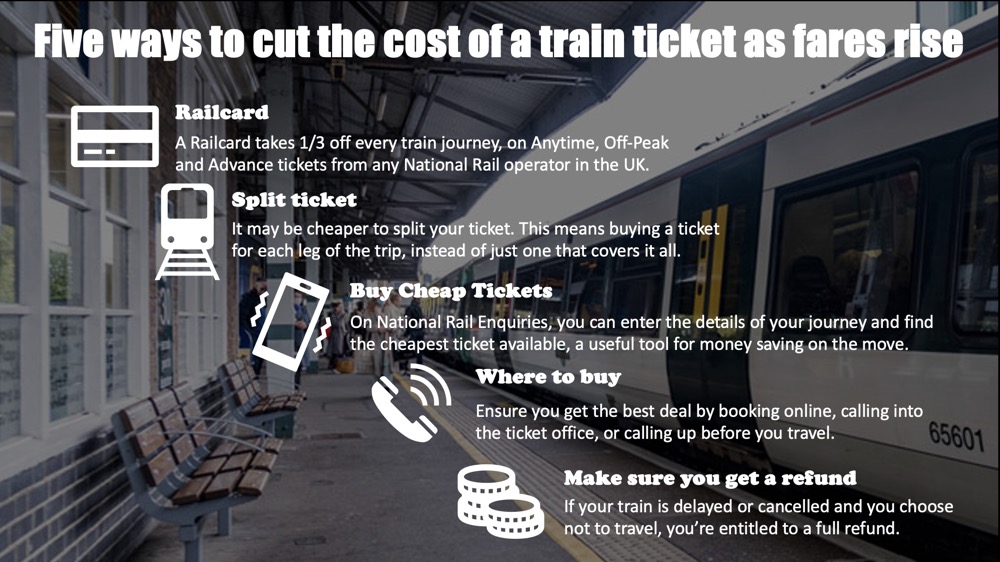Prices have just gone up again for rail travel, so do commuters think they are getting value for money on Welsh trains?

Earlier this month., train fares in England and Wales rose by 4.9% – the second highest increase in nearly seven years and second only to March 2023, when fares in England and Wales rose by as much as 5.9%, which could add hundreds of pounds to the cost of many annual season tickets.

Although opinions on Wales’ train services are mixed, the increase has really put a financial strain on people, especially for those who regularly travel to Wales by train for visits or work.

“I have noticed that we’re paying more for the train.” Caroline Nantel, 62 years old, a retiree living in England, said: “I think it’s very expensive, especially compared to like if we travel in other countries like we’ve travelled in Italy and Spain and Greece and the transport always seems a lot cheaper. So in Wales, it seems expensive.”
According to the UK Gov website, governments have been increasing rail fares in line with inflation each year since 1996. For Wales, according to South Wales Argus, reports show that Train fares rise as TfW roll out tech has been one of the reasons.
Lee Waters MS, deputy climate change minister with a responsibility for transport, in a speech to Transport for Wales senior management on 6 February that the increase was necessary to facilitate investments such as the new services between Ebbw Vale and Newport.
Mr Waters said: “We want you to focus on growing revenue, not by gaming the system, but by serving more people so that we can reinvest in public transport.” Meanwhile, Mr Waters notes the rise of 4.9% is below inflation.
In addition, one of the reasons behind the increased time and money spent travelling by train seems to be related to a historical figure, Dr Richard Beeching.

Published on 27 March 1963, Dr Richard Beeching’s report, The Restructuring of British Railways, outlined plans to cut more than 5,000 miles of track and more than 2,000 stations. Meanwhile, the car would replace the train, Beeching decreed.
Today, the makeup of UK transport looks very different from the one envisaged by Dr Beeching, his decision has made getting around Wales by public transport significantly more difficult. Because people are likely to spend more time and money on public transport.
For example, according to First Bus and google maps, the bus T1 TrawsCymru from Aberystwyth to Carmarthen takes approximately close to 2 hours and 30 minutes to travel 50 miles by road, whereas by train one would need to travel from Aberystwyth to Shrewsbury and then transfer for a train to Carmarthen, which takes about at least 6 hours to travel over 250km by rail.
More time and more travelling seem to need more investment in labour, money, and higher fares.

Caroline said, “We don’t travel by train very often, so it hasn’t made a big difference to us. We have used the national Express instead of the train because it may take a long time, but it’s cheaper, and it’s comfortable.”
Nile, who works in Cardiff and lives in another city, travels between Cardiff and his place of home three to five times a week, train fare increase doesn’t seem to affect him much so far. Nile said: “I think the trade is quite expensive for most people. So that doesn’t make me it. Better had I purchased them in advance, like season tickets. It’s still the most convenient way for me to do it.”
Faced with an irreversible situation, people should be looking for ways to reduce the cost of train tickets.

